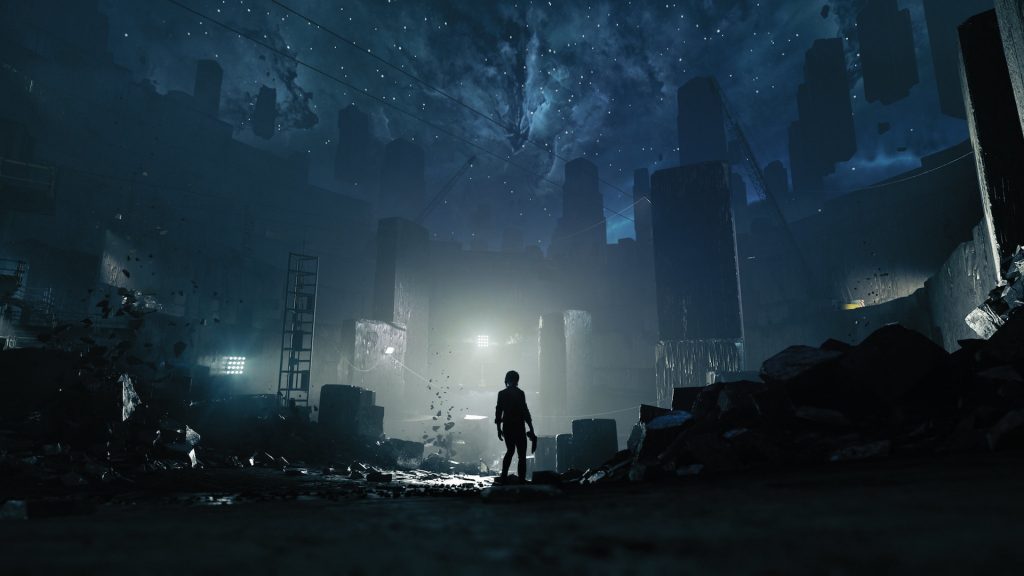In 2019, Remedy released what is probably their best game to date with Control, a stellar metroidvania third person shooter with a riveting story that also paved the way for what’s likely going to be an ambitious shared universe roping in games from the developer’s past and its future. Now, less than two years on from its original launch, Control is coming to ninth generation consoles, hoping to leverage their more powerful hardware and deliver a better looking and better performing version of an already excellent game. How successfully does it manage to do that?
In one word: very. Control was already an excellent looking game even on base PS4 and Xbox One consoles when it first came out not that long ago, and on the PS5, which is what I played Control: Ultimate Edition on, it looks even better. Meanwhile, boosts to the game’s performance have also addressed one of the original release’s bigger issues, resulting in a smoother experience that lets the game’s biggest qualities shine even brighter.
"In graphics mode, Control’s visuals really pop. While it’s not a night and day difference when compared to the game’s base PS4 or Xbox One versions, the improvement is still easily visible."
Like many other games, Control: Ultimate Edition offers two graphical options: a performance mode, which runs at 60 FPS and 4K, and a graphics mode, which runs at 30 FPS and 4K while also offering ray-tracing. In graphics mode, Control’s visuals really pop. While it’s not a night and day difference when compared to the game’s base PS4 or Xbox One versions, the improvement is still easily visible. Textures are sharper, character models and faces look more detailed, and finer details in the environments are more pronounced.
The headlining addition here is, of course, ray-tracing, with everything from polished walls and floors to transparent glass surfaces boasting ray-traced reflections, allowing the game’s impressive lighting to flourish even more. While ray-tracing in Control: Ultimate Edition isn’t anywhere close to being as good as Control’s RTX on a high-end PC, it looks solid enough, and does contribute to making the game look visibly better, rather than simply adding cursory improvements.
That said, for my money, performance mode is the best possible way to play Control. Barring ray-tracing, all of the visual enhancements are available in performance mode as well, while the game also runs at a 60 frames per second frame rate. Control is a game that’s defined by fast, bombastic, frenetic action, and while better performance is preferable to better visuals in any game, that’s doubly true in games like this one. Control: Ultimate Edition doesn’t always stick to its 60 FPS target, but the frame rate drops are largely minor and infrequent.
"Playing the game at 60 FPS is a blissful experience, and allows the eye-popping action to really shine."
By and large, playing the game at 60 FPS is a blissful experience, and allows the eye-popping action to really shine. Graphics mode also maintains a steady 30 FPS though, and in my time with the game, there were hardly any frame rate drops there, so if you absolutely do not want to miss out on ray-tracing, you can rest assured that you’ll still get a solid baseline level of performance. Frequent and drastic frame rate stutters were a major issue in Control at launch, especially on base consoles, so it’s good to see that being addressed so emphatically here.
Meanwhile, on the PS5, the game also features support for the DualSense’s haptics and adaptive triggers. There isn’t much to say about the former (there’s only so much you can say about how intensely the controller vibrates on your hand depending on whether your character is walking on tiles or on carpets), but the adaptive triggers are used to great effect, with the triggers offering different levels of tension and resistance with every pull of the trigger based on what form of the Service Weapon you’re using in a firefight. It’s not a highlight of the experience, but it’s good enough that it deserves to be mentioned.
Meanwhile, with the excellent base game and both of its expansions included in a single package, Control: Ultimate Edition is lacking neither in content nor in quality. The two expansions – The Foundation and AWE – don’t really touch the highs of the base game, but they’re still solid additions to the experience, and the latter in particular opens the door for an exciting shared Remedy universe. If you haven’t played the DLCs before, this is a great chance to do so. It is, of course, disappointing that publisher 505 Games hasn’t offered free next-gen upgrades to those who already have Control on PS4 or Xbox One. As such, even with the visual and performance improvements, I wouldn’t recommend dropping another $40 on a game you already own (if you do already own it). For newcomers though, this is a must-buy.
"With the excellent base game and both of its expansions included in a single package, Control: Ultimate Edition is lacking neither in content nor in quality."
Being less than two years old, Control wasn’t really in need of a radical reworking or an ambitious remaster. Control: Ultimate Edition is a pretty conservative upgrade, but the improvements it does make are solid. A pretty game is made prettier still, and the improved performance means that Control’s excellent action and shooting feel better and more kinetic than they ever have on a console in the past. If you haven’t yet played Remedy’s newest classic, wait no longer- Control: Ultimate Edition is the best way to do so.
This game was reviewed on the PlayStation 5.
